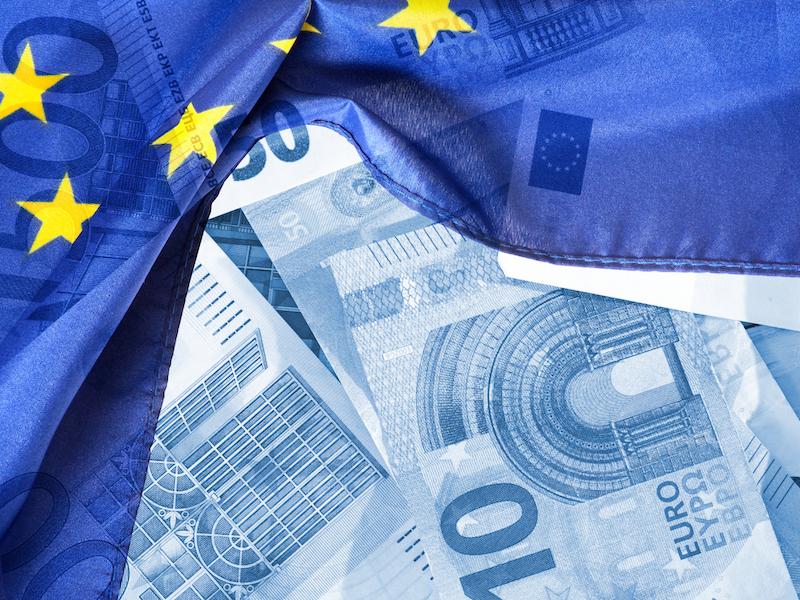Inflation has been a hot topic in Europe, especially as economies struggle to find balance post-pandemic. Understanding the current inflation rates and how they are expected to evolve is crucial for consumers, businesses, and policymakers alike. Let’s dive into the details of inflation in the European Union and explore why it is predicted to decline further in the near future.
Understanding Inflation: What Does It Mean for Europe?
Inflation is the rate at which the general level of prices for goods and services rises, eroding purchasing power. In Europe, inflation impacts everything from grocery bills to energy costs. A moderate inflation rate is typically seen as a sign of a growing economy, but excessive inflation can lead to economic instability. Understanding this balance is crucial for navigating the economic landscape in the EU.
ALSO SEE: EU Economic Growth: Projections for the EU Economy in 2024
Current Inflation Rates in the EU: A Snapshot
As of late 2024, inflation rates in the EU have shown signs of stabilizing after reaching alarming highs in previous years. In the wake of the COVID-19 pandemic and the energy crisis exacerbated by geopolitical tensions, inflation rates soared. However, recent data indicates that inflation is gradually declining. For instance, inflation rates in major economies like Germany, France, and Italy have reported a decrease from their peak levels, providing a glimmer of hope for consumers and businesses alike.
Factors Contributing to the Decline of Inflation in the EU
1. Monetary Policy Adjustments by the European Central Bank (ECB)
The European Central Bank plays a vital role in controlling inflation through its monetary policies. In response to soaring inflation rates, the ECB has adopted tighter monetary policies, including interest rate hikes. These measures aim to curb spending and borrowing, which, in turn, can help to lower inflation.
2. Supply Chain Stabilization
The disruptions caused by the pandemic had a ripple effect on global supply chains, leading to scarcity of goods and, consequently, price hikes. As supply chains stabilize, the availability of products improves, resulting in lower prices. This stabilization is a significant factor contributing to the expected decline in inflation across Europe.
3. Energy Prices Normalizing
Energy prices have been a major driver of inflation in Europe. After experiencing unprecedented spikes, energy costs are beginning to normalize. This trend is particularly important as energy is a critical input for various industries. As energy prices stabilize, we can expect a corresponding reduction in overall inflation rates.
The Role of Consumer Behavior in Inflation Trends
Shifts in Consumer Spending Patterns
Consumer behavior significantly impacts inflation. During times of high inflation, consumers may alter their spending habits, prioritizing essential goods over luxuries. This shift can lead to decreased demand for non-essential products, further contributing to a decline in inflation.
The Impact of Savings and Investment
As inflation rates decrease, consumer confidence may improve, leading to increased spending. However, many consumers remain cautious and may choose to save more instead of spending. This behavior can create a temporary dip in demand, which can further assist in lowering inflation.
Economic Indicators to Watch in the Coming Months
1. Unemployment Rates
A key indicator of economic health is the unemployment rate. A decline in unemployment typically correlates with increased consumer spending, which can affect inflation rates. Monitoring changes in the unemployment rate can provide insights into future inflation trends.
2. GDP Growth
Gross Domestic Product (GDP) growth is another critical economic indicator. A stable or growing GDP can suggest a healthy economy, whereas negative growth can signal trouble. Understanding how GDP is performing in relation to inflation rates can help predict future trends.
Challenges Ahead: Is Inflation Decline Sustainable?
1. Geopolitical Tensions
Despite the positive outlook on inflation, geopolitical tensions can disrupt economic stability. Issues such as trade disputes or conflict in Europe can have far-reaching impacts on supply chains and energy prices, potentially stalling the progress made in lowering inflation rates.
2. The Risk of Recession
While a decline in inflation is generally good news, it’s essential to be cautious. If inflation decreases too rapidly, it may indicate underlying economic weakness, possibly leading to a recession. Monitoring economic indicators closely will be crucial in ensuring that inflation reduction is sustainable.
Consumer Preparedness: What Can Individuals Do?
Understanding Inflation’s Impact on Personal Finances
As inflation rates fluctuate, individuals must understand how these changes impact their personal finances. Being aware of price changes in essential goods can help consumers budget better and make informed purchasing decisions.
Strategies for Financial Management
Consumers can adopt strategies to manage their finances effectively during inflationary periods. This includes creating a budget, prioritizing essential expenses, and exploring investment options that can hedge against inflation.
Conclusion: The Future of Inflation in Europe
In summary, while inflation rates in Europe have been concerning over the past few years, several factors indicate that these rates are on a decline. With effective monetary policies, stabilization of supply chains, and normalizing energy prices, there is a hopeful outlook for the future. However, it’s essential to remain vigilant, as economic conditions can change rapidly. By understanding these dynamics, both consumers and businesses can better navigate the economic landscape ahead.
FAQs
1. What is the current inflation rate in the EU?
As of late 2024, inflation rates in the EU have shown signs of decline, with specific rates varying by country.
2. How does the European Central Bank influence inflation?
The ECB influences inflation through monetary policies, including interest rate adjustments, which can control spending and borrowing.
3. What role does consumer behavior play in inflation rates?
Consumer behavior significantly impacts inflation; changes in spending habits can influence demand and pricing across various sectors.
4. Are there any risks associated with declining inflation?
Yes, risks include potential geopolitical tensions and the possibility of a recession if inflation declines too rapidly.
5. How can individuals prepare for changing inflation rates?
Individuals can prepare by understanding inflation’s impact on personal finances and adopting budgeting strategies to manage expenses effectively






